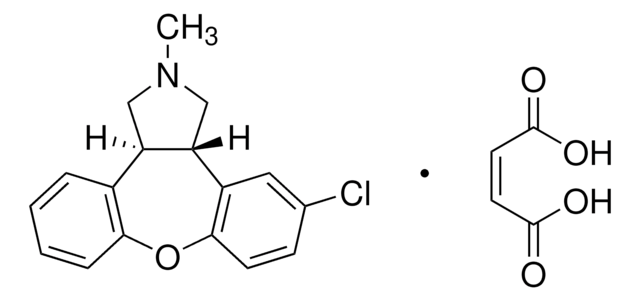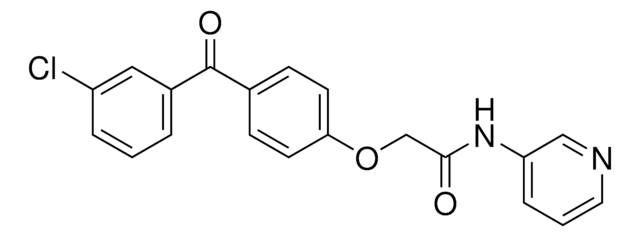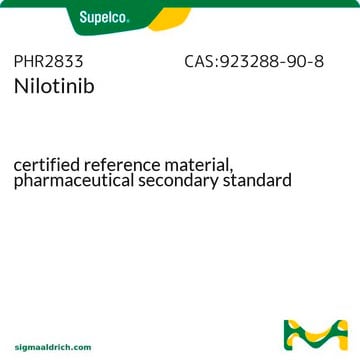S8072
Sertindole
≥97.5% (HPLC)
Sinonimo/i:
1-[2-[4-[5-chloro-1-(4-fluorophenyl)-1h-indol-3-yl]-1-piperidinyl]ethyl]-2-imidazolidinone
About This Item
Prodotti consigliati
Saggio
≥97.5% (HPLC)
Stato
solid
Colore
off-white
Solubilità
DMSO: >10 mg/mL
H2O: <2 mg/mL
Ideatore
Abbott
Temperatura di conservazione
2-8°C
Stringa SMILE
Fc1ccc(cc1)-n2cc(C3CCN(CC3)CCN4CCNC4=O)c5cc(Cl)ccc25
InChI
1S/C24H26ClFN4O/c25-18-1-6-23-21(15-18)22(16-30(23)20-4-2-19(26)3-5-20)17-7-10-28(11-8-17)13-14-29-12-9-27-24(29)31/h1-6,15-17H,7-14H2,(H,27,31)
GZKLJWGUPQBVJQ-UHFFFAOYSA-N
Informazioni sul gene
human ... ADRA1A(148) , ADRA1B(147) , ADRA1D(146) , DRD2(1813)
Applicazioni
Azioni biochim/fisiol
Caratteristiche e vantaggi
Avvertenze
Warning
Indicazioni di pericolo
Consigli di prudenza
Classi di pericolo
Aquatic Chronic 4 - Eye Irrit. 2 - Skin Irrit. 2 - STOT SE 3
Organi bersaglio
Respiratory system
Codice della classe di stoccaggio
11 - Combustible Solids
Classe di pericolosità dell'acqua (WGK)
WGK 3
Punto d’infiammabilità (°F)
Not applicable
Punto d’infiammabilità (°C)
Not applicable
Dispositivi di protezione individuale
dust mask type N95 (US), Eyeshields, Gloves
Scegli una delle versioni più recenti:
Certificati d'analisi (COA)
Non trovi la versione di tuo interesse?
Se hai bisogno di una versione specifica, puoi cercare il certificato tramite il numero di lotto.
Possiedi già questo prodotto?
I documenti relativi ai prodotti acquistati recentemente sono disponibili nell’Archivio dei documenti.
Articoli
We offer many products related to dopamine receptors for your research needs.
We offer many products related to serotonin receptors for your research needs.
Il team dei nostri ricercatori vanta grande esperienza in tutte le aree della ricerca quali Life Science, scienza dei materiali, sintesi chimica, cromatografia, discipline analitiche, ecc..
Contatta l'Assistenza Tecnica.









